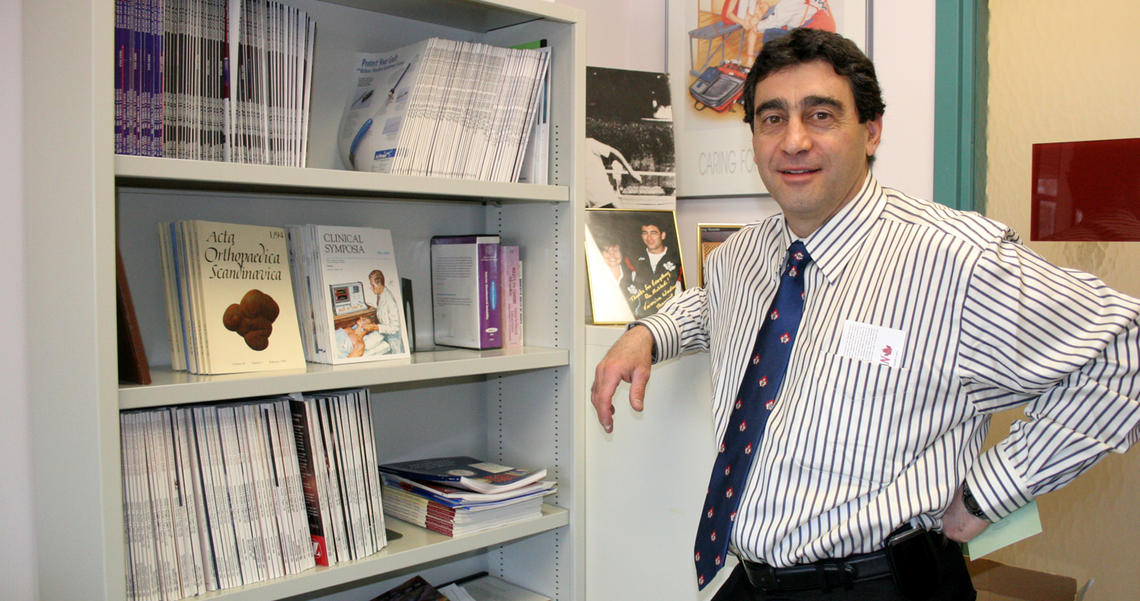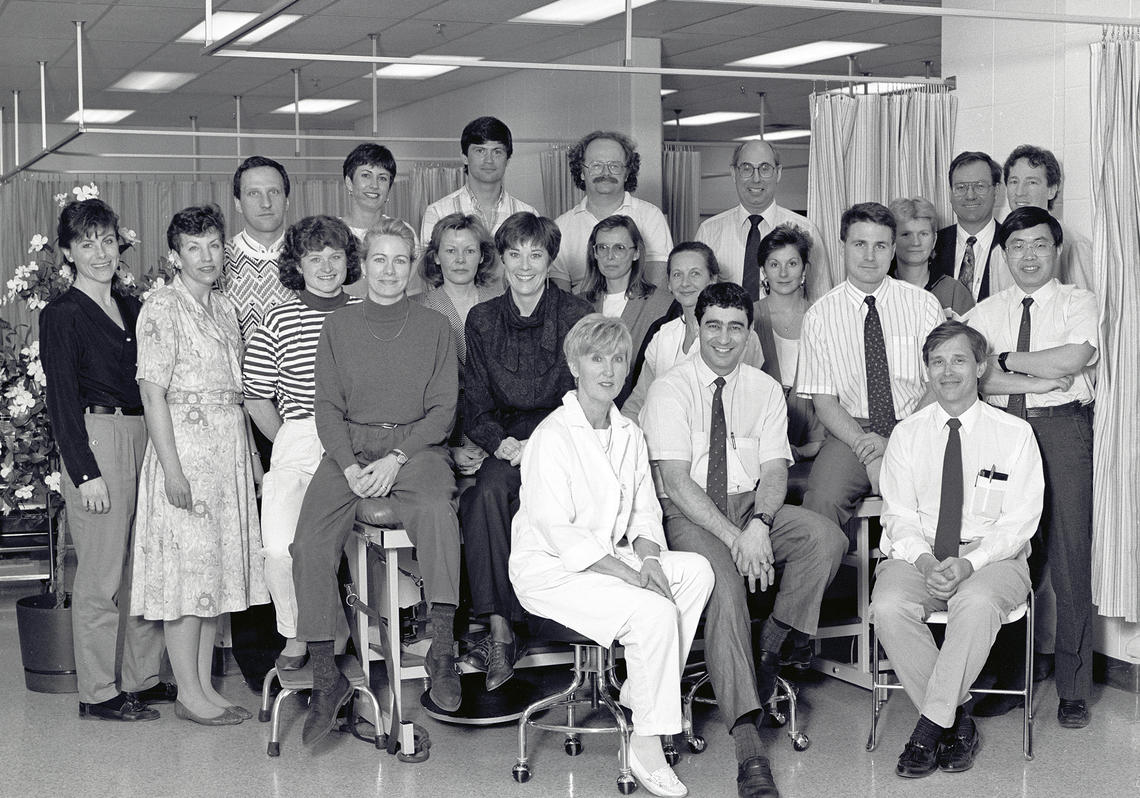Jan. 28, 2015
Nick Mohtadi takes over reins at Sport Medicine Centre

Nick Mohtadi stepped into the role as director of the Faculty of Kinesiology’s Sport Medicine Centre
Looking back over his 24 years at the Faculty of Kinesiology’s Sport Medicine Centre, Dr. Nick Mohtadi considers the question of why he has stayed here. “The Sport Medicine Centre is the best place in North America to do sport medicine. The best place.”
In January, the decorated surgeon — and former tennis pro who played Wimbledon — took over the reins of the Sport Medicine Centre, determined to make the next 25 years as innovative as the first 25.
If you’re unfamiliar with the SMC, it's dedicated to sport medicine, a full-service clinic that combines orthopedic and sport medicine surgeons with athletic and physical therapy. The SMC is connected to the highest levels of sports, research and teaching — the part of the equation that most people don’t understand. “I think that the most difficult message for people to understand is that we’re not just a clinic seeing patients,” says Mohtadi. “The research we do is quite a bit different than research which is done in a lab. Our teaching is different than that which is done in a lecture hall. It takes a lot of time and a lot of effort, and we do that on the backs of our clinical incomes and our patients who are extremely co-operative.”

The Sport Medicine Centre in the 90s, with Nick Mohtadi as a fledgling, academic orthopaedic surgeon
This unique approach to clinical research and teaching reflects the dynamic history of the innovative centre, which Roger Jackson built in 1990 on the bones of the 1988 Winter Olympic athletes’ village. At the time, many were openly skeptical about the need for a centre dedicated to sport medicine. “There are always naysayers” says Mohtadi. “The credibility of sport medicine at that time was in question, particularly when it came to orthopedic surgeons and that’s why the academic side was so important for all of us.”
Perhaps as a result of this, Mohtadi believes that the centre has always been motivated to push the envelope. “I don’t think people realize the impact that this place has had on standards of teaching, academics, and clinical care; the standards that we adhere to, maybe to a greater extent than other places. I know that’s kind of blowing our own horn, but there’s a lot of truth in that. When people come through they can see the way we do things and take that knowledge elsewhere, whether it’s a student, fellow, resident, or whoever … and that goes worldwide also.”
These high standards and a history of innovation are the things Mohtadi is most proud of over the centre’s 25 years. Innovation like the Acute Knee Injury Clinic, an approach that utilizes kinesiologists to help assess patients, moving them into the appropriate treatment stream (surgery or physiotherapy) more quickly and reducing wait-times by easing the bottleneck of patients waiting to see an orthopedic surgeon.
"I guess 25 years from now I’d like people to be able to admire the Sport Medicine Centre for how innovative and transforming we are in the way we take care of people in the community, based on all we’ve learned from our academic pursuits and our involvement with high-performance athletes,” says Mohtadi. “That we’ve gone beyond what other people were doing.”
